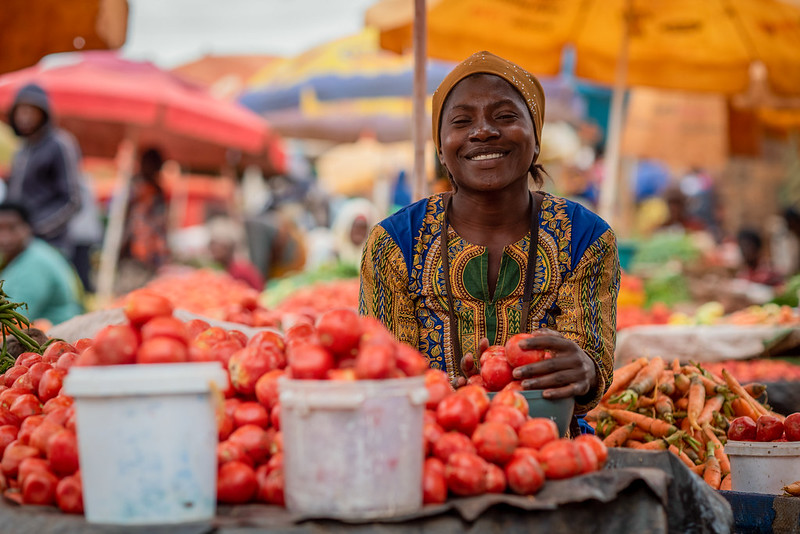Overview
Researchers
Jeremy Magruder
Associate Professor of Agricultural and Resource Economics at University of California, Berkeley
- Country
- Rwanda
- Timeline
- 01/01/2024 - 05/01/2025
- Constraints
- Information, Input and Output Markets
- Technology Category
- Extension

Photo Credit: USAID via Flickr
In Rwanda, many small-scale farmers leverage cooperatives—often groups cultivating similar crops in close proximity—to share input costs and optimize resources. These cooperatives can play a pivotal role in overcoming common barriers to profitable commercial agriculture for individual small-scale farmers who face challenges such as small acreage and output, inadequate information, high transportation costs, and difficulty accessing markets and extension services. Comprehensive on-the-go access to farm records and information could allow farmers and cooperative leaders to make informed decisions when managing their crops, which could lead to increased yield and profits. This pilot study aims to address the following research questions: Can the provision of market linkages, access to finance, extension services, and cooperative management bring about changes in on-farm investment, leading to increased farmer profits? Furthermore, does the enhancement of cooperative management alone increase on-farm investment and farmer profits? Lastly, does the utilization of technology empower smallholder farmers to collectively achieve scale economies and commercialization?
Researchers have partnered with a Rwandese agro-tech company that provides an online platform for agricultural cooperatives and individual farmers. At the cooperative-level, the platform digitalizes record keeping, allowing cooperatives to generate reports to support their crop production, finance, and sales decisions. At the farmer-level, the platform provides access to extension services, markets, and capital. The USSD platform utilizes Unstructured Supplementary Service Data (USSD) codes which means it is accessible on all mobile devices, even without the internet, ensuring smallholder farmers with non-internet enabled phones can easily use it.
Researchers will select, at random, thirty cooperatives where most member farmers are not currently using the platform. Member farmers at these cooperatives will receive training and promotion on the platform.
Researchers will test two versions of training and promotions:
- Partial promotion: Members of ten cooperatives will be offered training on the platform by cooperative leadership. Additionally, 25 percent of participants from this group will be offered targeted and individualized training to further promote platform usage.
- Saturated promotion: Members of ten cooperatives will be offered training on the platform by cooperative leadership. Additionally, 75 percent of participants from this group will be offered targeted and individualized training to further promote platform usage.
- Comparison group: The remaining ten cooperatives selected from the thirty total cooperatives will not be offered training or promotion of the digital platform.
Researchers will survey farmers and access administrative data to understand use of the digital platform, as well as survey cooperative leadership to understand how access to the digital platform changes cooperative decision-making and record any concerns or barriers to use. Additionally, researchers will assess barriers particular to female platform users. The take-up results of the study will inform a future randomized evaluation and provide insight into the feasibility of using a cooperative-level platform to change on-farm investment and output.
This pilot is ongoing, and findings are forthcoming.